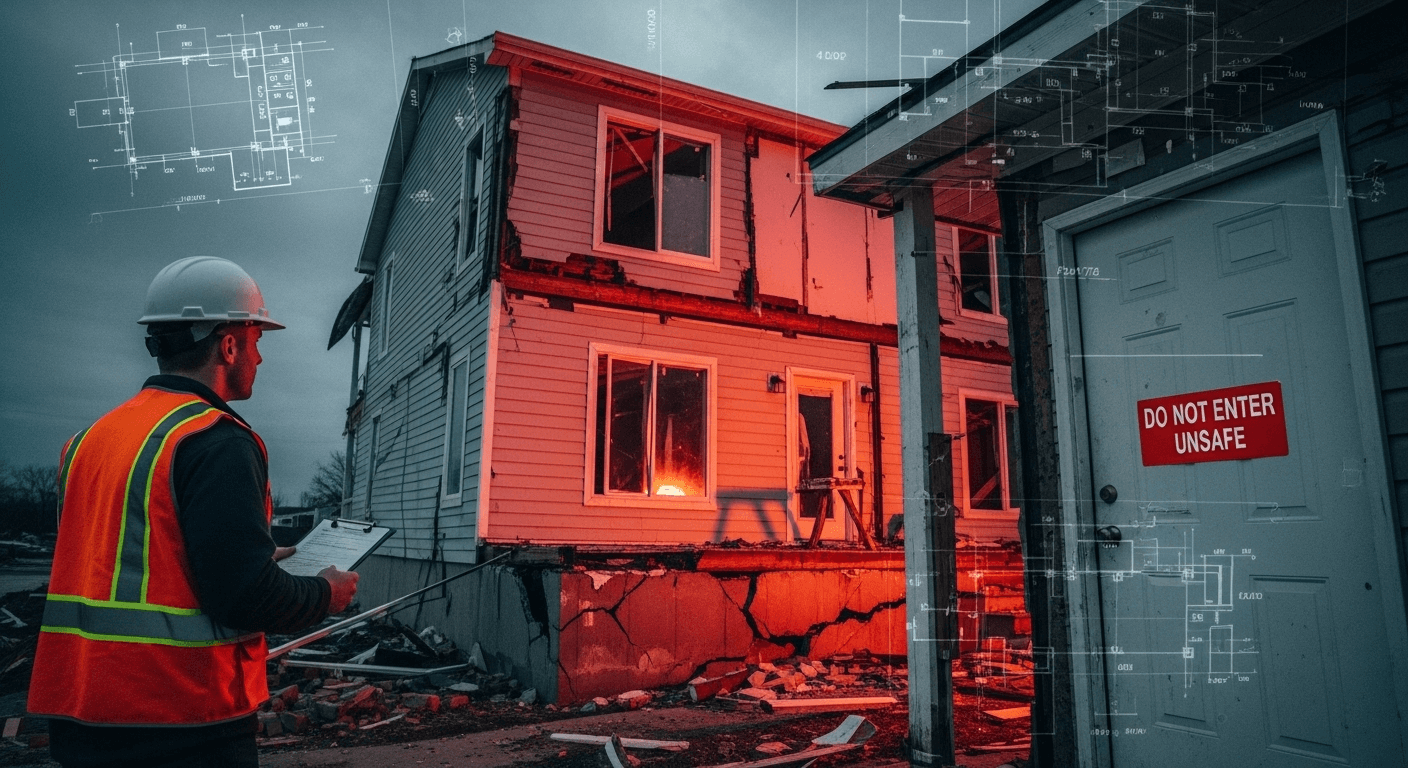When Do You Need a Structural Engineer After Property Damage?

When Do You Need a Structural Engineer After Property Damage?
Introduction
Property damage is more than an inconvenience—it can threaten the very stability of your home or business. When walls crack, foundations shift, or roofs sag, you need more than a handyman’s quick fix. This is where astructural engineer after property damagebecomes invaluable. Their role isn’t just about identifying what’s broken; it’s about ensuring the building’s safety, integrity, and compliance with local building codes.
In this guide, we’ll break down exactly when you should call one, what they do, and how their expertise can save you from long-term headaches and unexpected costs.
TLDR – Quick Guide
Hire a structural engineer after property damage when:
- You see significant cracks, bulges, or leaning walls.
- There’s visible foundation movement or uneven floors.
- Storms, earthquakes, or floods cause structural shifts.
- You need an expert report for insurance or legal purposes.
- You’re planning major structural repairs or rebuilds.
Detailed Breakdown
What Does a Structural Engineer Do After Property Damage?
A structural engineer inspects the building’s framework to assess damage severity and root causes. They evaluate whether the structure is safe to occupy, recommend necessary repairs, and design solutions that restore or enhance stability. Their reports are often essential for insurance claims, building permits, and contractor instructions.
Signs You Should Call a Structural Engineer Immediately
- Major Foundation Cracks
Large, widening cracks in basement walls or floors can indicate shifting soil or structural settlement. - Roof or Ceiling Sagging
This may suggest compromised load-bearing elements that require immediate professional evaluation. - Doors and Windows Misaligning
When frames suddenly stick or gaps appear, it can be a sign the structure is shifting.
Common Causes of Structural Damage
- Natural Disasters
Earthquakes, hurricanes, tornadoes, and floods can all compromise structural stability. - Water Intrusion
Leaks, plumbing failures, or poor drainage can weaken foundations and support beams over time. - Poor Construction or Renovations
Work done without proper engineering oversight may create hidden weaknesses that surface later.
Benefits of Hiring a Structural Engineer After Property Damage
- Safety First
They identify hazards that may not be visible to the untrained eye. - Objective Assessments
Their reports are unbiased, which is crucial for insurance and legal disputes. - Cost Efficiency
Early intervention can prevent small issues from becoming major (and expensive) problems.
The Process of Working with a Structural Engineer
- Initial Inspection– A site visit to identify visible and hidden damage.
- Detailed Analysis– Using tools, measurements, and sometimes lab testing to assess structural health.
- Report & Recommendations– A written document outlining damage severity, safety concerns, and repair methods.
- Implementation Oversight– Some engineers work alongside contractors to ensure repairs follow the plan.
Key Takeaways
- When in doubt, call an expert.A structural engineer after property damage can mean the difference between safe repairs and future disaster.
- Visible cracks, leaning walls, or sagging roofs are red flags you shouldn’t ignore.
- Their expertise not only ensures safety but also protects your financial investment by preventing long-term issues.
- Involving them early speeds up insurance claims and permits.
FAQs
- Do I always need a structural engineer after property damage?
Not for minor cosmetic issues, but for any suspected structural problems—like major cracks, leaning walls, or shifting foundations—a structural engineer’s expertise is crucial. - How much does it cost to hire a structural engineer?
Costs vary by location and project complexity, but expect to pay anywhere from a few hundred dollars for a basic inspection to several thousand for detailed reports and oversight. - Will a structural engineer repair the damage?
No, they don’t perform repairs. Instead, they assess the damage, design repair plans, and often oversee contractors to ensure work meets engineering and safety standards. - Can my insurance company require a structural engineer’s report?
Yes, especially for large claims. Insurers often request an engineer’s report to verify damage severity and determine repair costs. - How quickly should I contact a structural engineer after property damage?
Immediately, especially if the building’s safety is in question. Delaying could worsen the damage, increase repair costs, or put occupants at risk.
